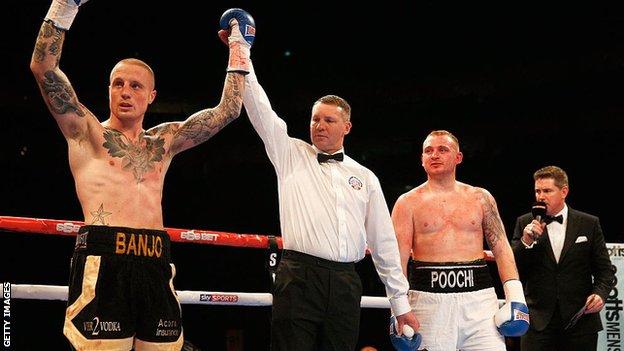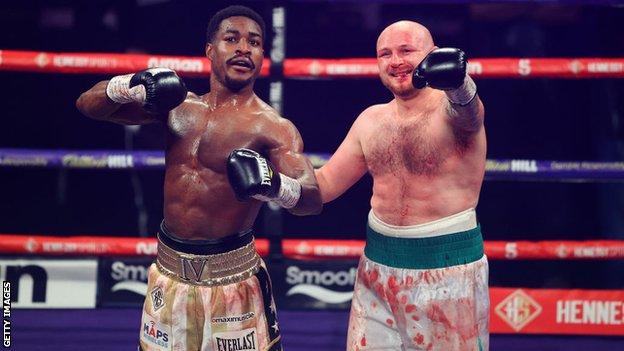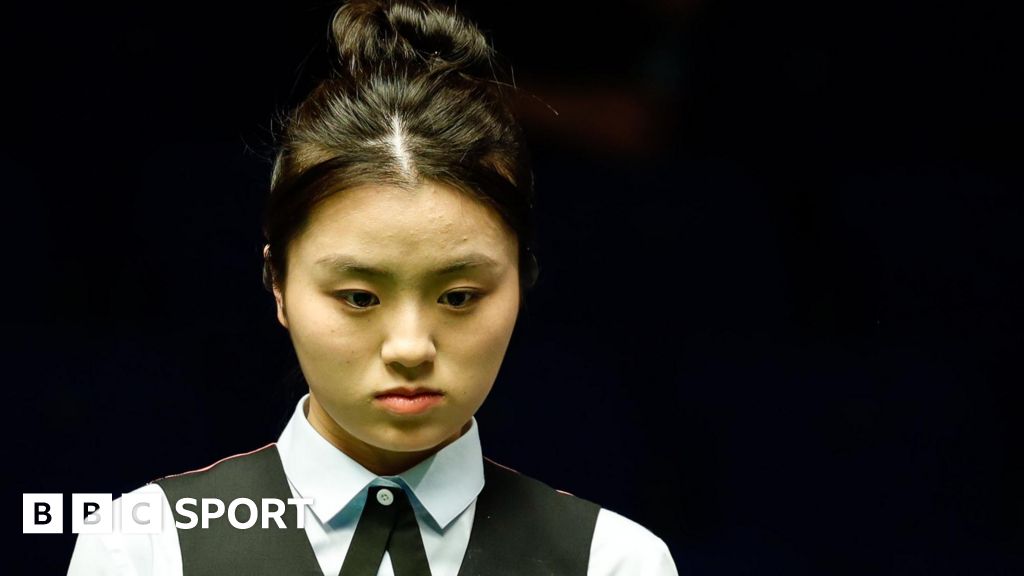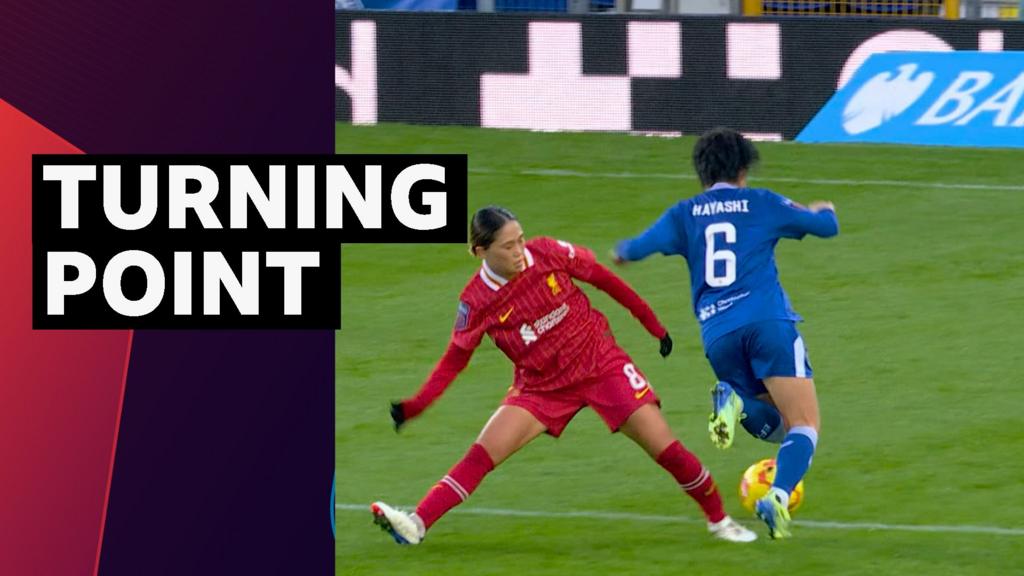ARTICLE AD BOX
 Lewis van Poetsch (right) is a seasoned pro with 151 fights but just nine victories
Lewis van Poetsch (right) is a seasoned pro with 151 fights but just nine victories"Maybe I could have been British champion, but I love being a professional loser."
They need to raise at least £2,000 per contest, to cover various expenses and among those costs, controversially, is their opponent's fee.
These opponents, by contrast, receive £1,000 or more simply for turning up, which can make the role sound an attractive proposition. However, these 'journeymen', who choose the career path in the away corner, face their own challenges.
"Essentially, I'm a good, professional loser - and I'm OK with that," says Lewis 'Poochi' van Poetsch, a 151-fight journeyman from Lydney in Gloucestershire. "You've got to be cut from a certain type of cloth to do what I do. It's not for everyone."
The 31-year-old has spent the last 10 years boxing up and down the country, between middleweight and light-heavyweight - and forged a reputation as one of the small hall scene's best-loved characters.
Renowned for his inventive ring walks and likeable persona, he has nonetheless won only nine of his professional bouts, with three draws and a whopping 139 defeats.
"I'm there to put on a show, make the fight fun and lose, preferably on points," explains Van Poetsch. "No-one's telling me to lose, as such, but that's how it is. If I get stopped or injured, there's a 28-day suspension, so I don't want that."
The British Boxing Board of Control issues their boxing licences once a fighter can passes all their medical checks. As a licence holder and feature of small shall shows, Van Poetsch's health is regularly monitored.
His route into boxing was similar to many fighters, despite the specific role he now fulfils. Having started training at the Lydney amateur club aged 12, with coach Dean Aitken, he amassed an amateur record of 20 wins from 36 contests.
"I had a very forward style," says Van Poetsch. "A bit like Ricky Hatton - attack the body, lots of hooks, so I always thought the pros would suit me. I enjoyed watching pro boxing on TV and loved the audiences, the big atmospheres. It's something I always wanted to be a part of."
- Jimmy 'the Fist' First - meet the oldest prospect in the UK
- How do you measure the 'Amir Khan effect'?
He entered the paid ranks at 21, under the banner of KM Promotions in Swindon and with lofty aspirations at that time.
"I sold about 120 tickets for my debut - and I won," adds Van Poetsch. "I was training with Tony Borg, in Newport, sparring the likes of [former world featherweight champion] Lee Selby. So I felt if I kept improving, I could go far. If everything went right, I believed I could be British champion.
"But then I overtrained for my second fight, ran out of gas, and lost to a kid I should have beaten. The tickets dwindled and I had to rethink. I found myself wondering if I was really cut out for it."
Not long after his shock loss, 'Poochi' began to learn the quirks of the boxing business.
"It was a Wednesday and my manager phoned, offering a fight on the Saturday in London," he recalls. "I said I would struggle to sell tickets on such short notice.
"He said, 'Look, you're the away fighter, you can just turn up, the other guy will do all the selling'. I thought that was fantastic, so I agreed."
Unburdened from the pressure of ticket sales, Van Poetsch enjoyed his first bout in the away corner. He then made the decision to continue in the same vein, initially "with an open mind", but soon he began to feel referees - whose wages also come from the home fighter's ticket sales - were not giving him a fair shake.
"In several fights I got ripped off," he says. "I boxed well, even dominated, but still lost the decision. It's tough like that in the away corner so, after a while, I just thought, what's the point?
"I went in with Johnny Coyle at York Hall and that was the first time I boxed with a pure journeyman mentality. I just thought I'll ride him around the ring.
"I didn't care about the result and you know what, it was easy. I never got hurt and I got paid. Ever since then, my phone is always ringing. If you give people what they want, you're in demand."
 Van Poetsch has learned to lose a fight well
Van Poetsch has learned to lose a fight wellSince that fight in February 2014, Van Poetsch has often boxed three or four times a month. He has abandoned his title dreams, but values the extra income, which supplements his day job as a lift engineer. Van Poetsch trains when he can and thrives, as he always knew he would, on the buzz of the crowd.
Recent appearances have seen him come to the ring dribbling a football or dressed as movie heroes Charles Bronson or Austin Powers. Crowds lap it up.
Once the bell sounds, 'Poochi' has developed the knack of providing entertainment while sticking to the role the system requires. After every contest, a report is filed by the ringside inspector, commenting on each boxers' performance.
Despite his accumulated losses, Van Poetsch clearly holds his own and avoids sanction from the boxing board. This balance of losing, but always in the right way, is an art in itself.
"You learn as you go," he adds. "It comes with experience."
Already booked for further fights in the next few weeks, Poochi's popularity shows no signs of slowing down. Most importantly, he gives the impression of a man who has truly found his niche.
He says: "I work full-time and I'm taking fights on short notice to box kids who've had a six-week training camp, but that's all part of the fun.
"I love being a journeyman. There's no pressure on me. I live a normal lifestyle and make a few quid. I'm not in the gym 24/7, I can have a beer if I want.
"I have no regrets...none at all."

- Covid pseudoscience? Delve into the conspiracy that gripped a picturesque British town
- International Women's Day: Four strikes that made history


 2 years ago
19
2 years ago
19








 English (US)
English (US)